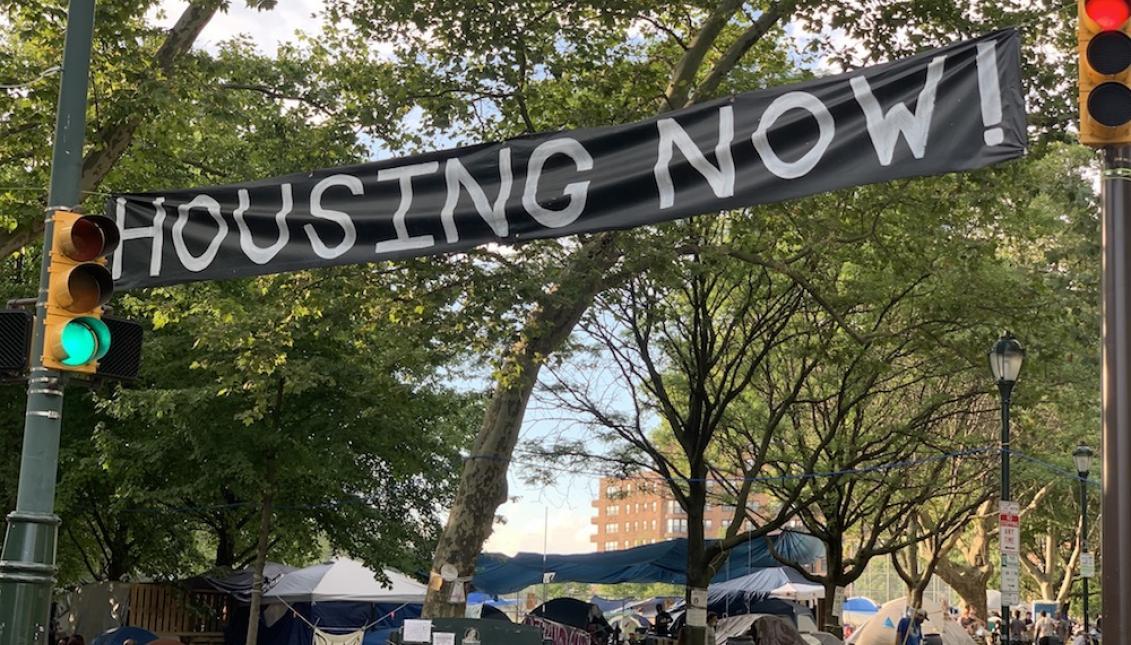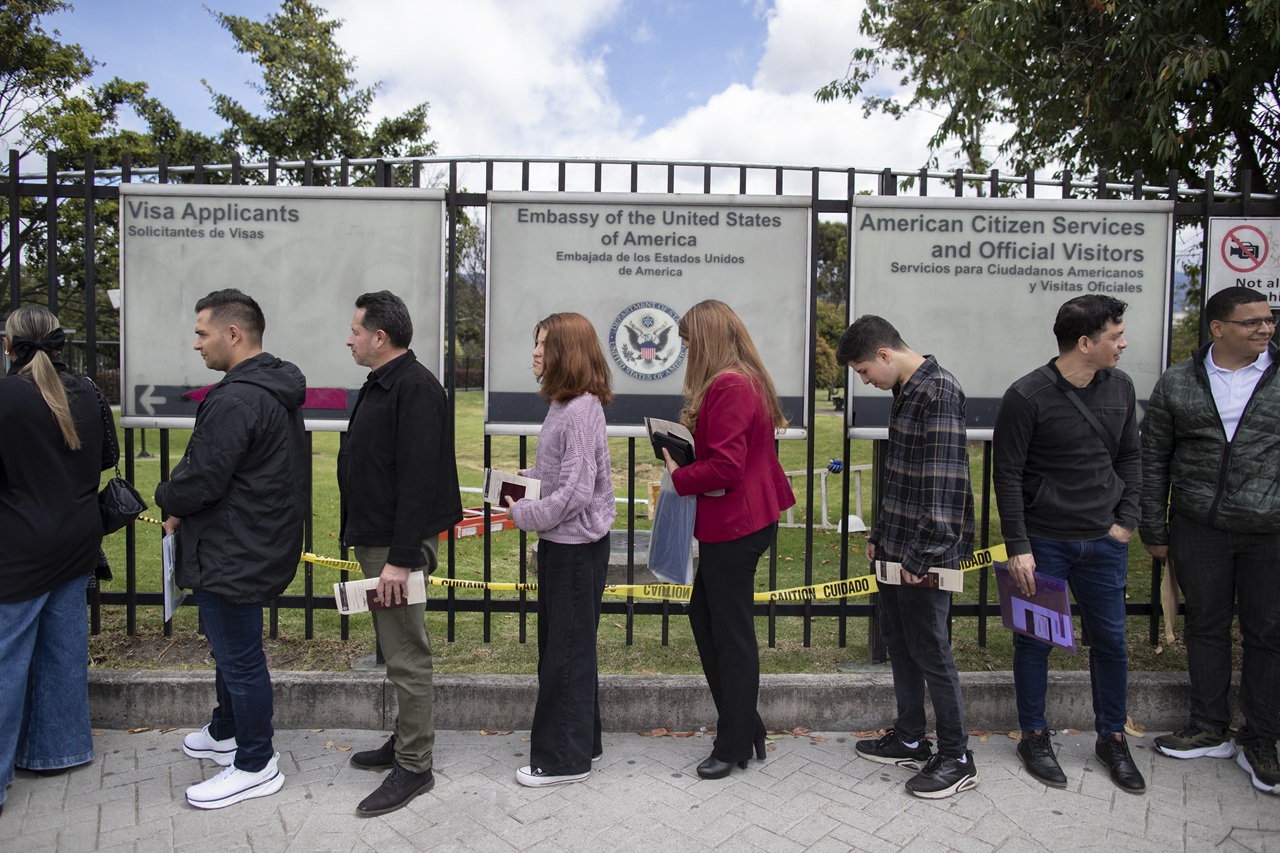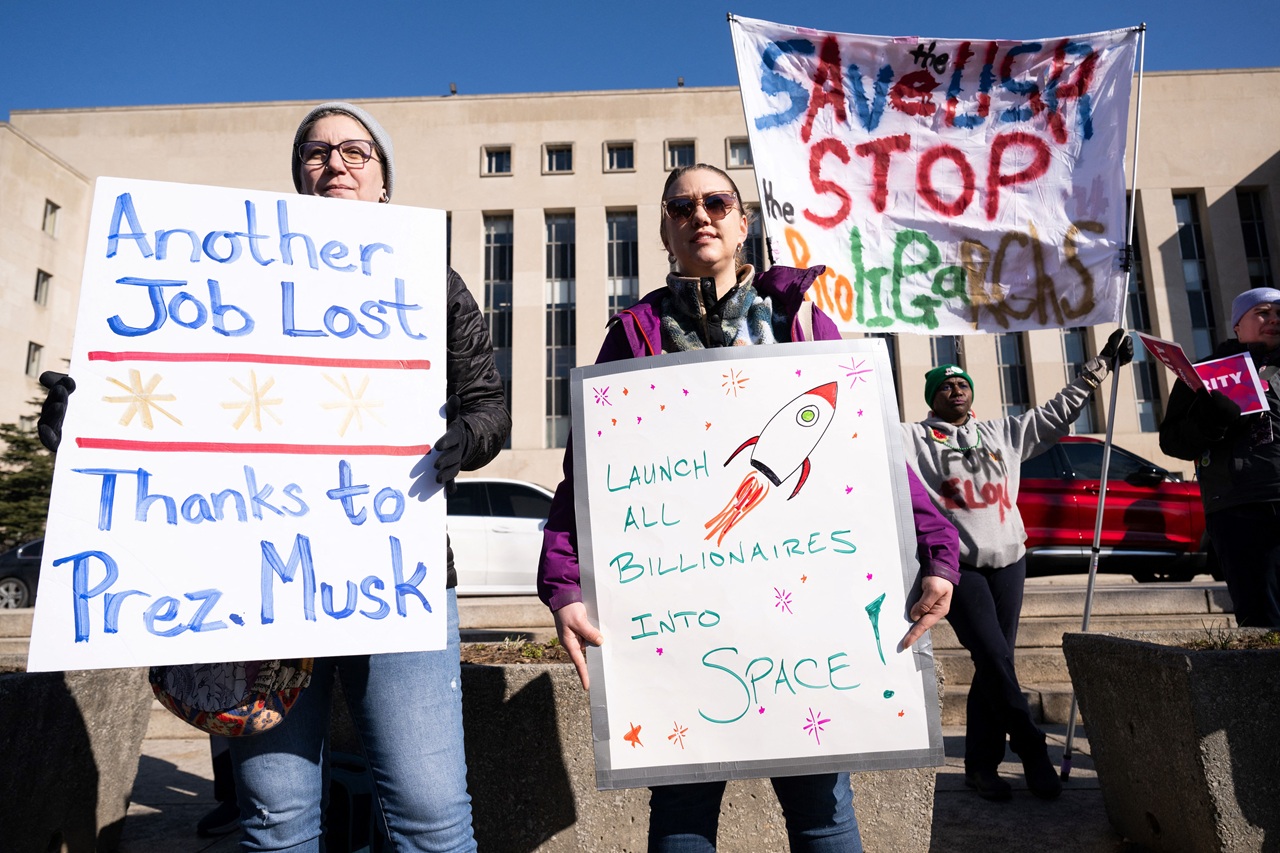
Homeless encampments are a symptom of a housing system in need of massive change, just ask Philadelphia
Liz Hersh, the city’s director of homeless services says there’s just not enough in the city where people can live.
In an effort to seek warmth and shelter from the recent snow emergency and ongoing cold front, homeless people have set up an encampment inside the underground concourse of a Center City PATCO station on 12th and Locust streets.
Another sad sight where a new Philadelphia homeless encampment is growing underground along the Locust Street @PATCO & @Septa subway corridors as morning commuters walking past tents and some people without tents. @FOX29philly pic.twitter.com/yQESiYkN1t
— Steve Keeley (@KeeleyFox29) February 25, 2021
But according to Liz Hersh, Director of Homeless Services at the city’s Office of Homeless Services, the encampment cannot be blamed solely on the weather. The PATCO station tents highlight Philadelphia’s housing problem. Hersh sees the issue in very simple terms: there are just not enough places for people to live.
Through the aid of dedicated nonprofit agencies, the city has made progress in fighting the homelessness crisis, but data still shows that the Philadelphia region’s available affordable housing is far below the national average.
“It’s a symptom of the deep poverty that we see, the deep inequity and the gap between rich and poor. We have a lot of people who are living on disability income, which is [around] $800 a month, or maybe they have no income at all, and they just can’t afford to pay the rent,” Hersh said.
She said that outreach workers are informing people at the encampment about other options, such as emergency shelters, residential treatment programs and mental health facilities that don’t require personal identification for entry.
The cold can be dangerous, particularly for people experiencing homelessness. Request a street outreach team any time, any place by calling 215-232-1984. #StayWarmPHL https://t.co/cVozaKL7Fm pic.twitter.com/nehK62Es7t
— Philadelphia Public Health (@PHLPublicHealth) February 19, 2021
The city owns the concourse and PATCO operates the transit station, so the two entities have decided to collaborate to tackle the issue as best they can.
“These are individuals who have fallen on very difficult times, and we are working with the city to provide them with assistance and resources,” said Delaware River Port Authority spokesperson Mike Williams.
Through federal CARES Act funding, the city is currently working to move 75 people into a home via a rapid rehousing program that would allow them to live there for one or two years with subsidized social services support.
While SEPTA doesn’t have a role with the 12th Street station encampment, it’s not unusual to find people experiencing homelessness in agency stations, according to SEPTA spokesperson Andrew Busch.
“The train system is out of the elements, it’s a safe environment. So we do have our own challenges, and they become a little more acute at this time of year due to the weather,” Busch said.
Busch told WHYY about a SEPTA program that partners transit police officers with social service professionals to better deescalate conflicts and assist in the treatment of those struggling with mental health and substance use disorders.
RELATED CONTENT
“We know that policing by itself is not going to be the solution to this problem,” he said. Busch believes that with the help of the social services professionals, they’ll be able to break through barriers that would otherwise seem impossible to fix.
Encampments have become increasingly visible in cities around the country before the pandemic, but the rise in infections may have driven more people into informal residential colonies as opposed to shelters.
In late June 2020, the Workers Revolutionary Group and other groups organized an encampment along the Benjamin Franklin Parkway after being displaced by COVID-19 and the protests for racial justice. The encampment was set up to highlight the housing crisis and demand permanent affordable housing options.
The Workers Revolutionary Collective and Occupy PHA have begun an encampment at Von Colln Memorial Field (at the intersection of Spring Garden St and Pennsylvania Ave)
— Philly Socialists ✪ (@phillysocialist) June 10, 2020
They need bodies on the ground to hold it down. Please make it out if you can. Details below: pic.twitter.com/fCgLeqND2r
Hersh explained that the rise of encampments is likely a symptom of something that should be universally understood: the need and desire for community. She also emphasized that people experiencing homelessness are often unfairly stigmatized, but they are no different than everyone else.
“They like to live in communities, they like to live with people whom they have things in common with and who they like, and so they live together,” she said.

This article is part of Broke in Philly, a collaborative reporting project among more than 20 news organizations focused on economic mobility in Philadelphia. Read all of our reporting as brokeinphilly.org.











LEAVE A COMMENT:
Join the discussion! Leave a comment.